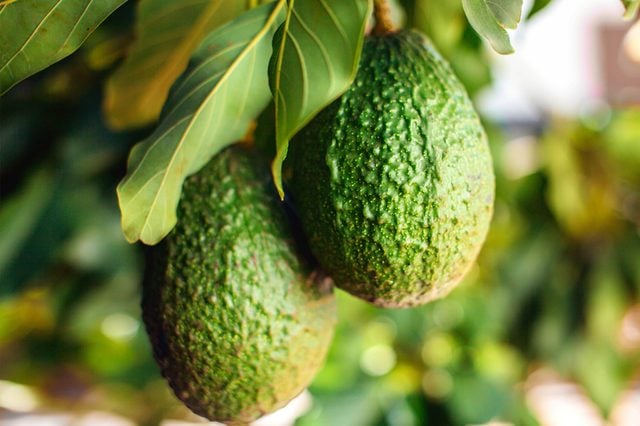The Origin of the Word “Avocado” Is About to Make You Really Uncomfortable
Updated: May 15, 2023
You'll never look at an avocado the same way again.

There are tons of reasons to love avocados. Not only are they chock-full of good fats that keep your heart healthy and cut your cancer risk, but they taste dang delicious. But they might take on a new giggle-worthy meaning when you learn their backstory.
Avocados originally came from Mexico and Central America, where the indigenous Nahua people found them. Back then, avocados were called the Nahuatl word āhuacatl—which also happened to mean “testicles.” Scholars think the Nahua chose the name because of the fruit has a, uh, suggestive shape and was considered an aphrodisiac, according to NPR. The Nahua probably used the anatomical definition as slang, like how we might use “nuts” today, Nahuatl scholar Magnus Pharao Hansen, PhD, tells Snopes.
When the Spanish conquistadors came, they changed the name to aguacate, according to Today I Found Out. The United States imported the fruits, but they were a tough sell because Americans had a hard time saying the word. Marketers tried using “avagato pear” and “alligator pear” in reference to its shape (a more G-rated choice than the first time around). Eventually, they settled on “avocado.” Check out these other words that have totally changed meanings.
Some people claim “guacamole” means “testicle sauce” because it comes from āhuacamōlli—a combination of āhuacatl (avocado) and mōlli (sauce). But Mesoamerican language specialist Frances Karttunen, PhD, says that isn’t quite accurate. Guac didn’t come around until the fruit became aguacate, and that Spanish translation didn’t carry the same double meaning the Nahuatl word did.
“Seems to me that contemporary Nahuah get a giggle out of looking up at the fruit hanging in the trees and thinking of them as vegetable testicles,” says Dr. Karttunen. “But, except in jest, I don’t think a Nahua would imagine āhuacamōlli to be anything other than mashed up avocado.” While we’re here, is avocado a fruit or a vegetable?